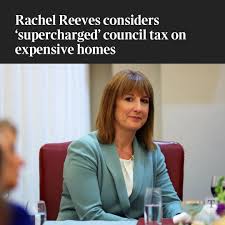Rachel Reeves Proposes Changes to Council Tax Bands

Importance of Council Tax Bands
Council tax bands are crucial for determining the amount of tax local authorities can charge residents, funding services such as education, waste management, and emergency services. With the rising cost of living, discussions around equity in council tax structures have become increasingly relevant.
Recent Developments
In a recent statement, Rachel Reeves, Shadow Chancellor of the Exchequer, outlined Labour’s plans for reforming council tax bands to promote fairness across the taxation system. Reeves highlighted that the current banding system, established in England in 1991, has not been updated to reflect changes in property values or the economic climate, leading to an inequitable tax burden on families.
The Labour Party proposes to create more bands for properties valued higher than the existing bands, suggesting this would better capture the wealth of homeowners and reduce the financial strain on lower-valued properties. This comes during a significant financial strain felt by many households, exacerbated by inflation and rising living costs.
Policy Implications
According to Reeves, updating council tax bands could generate much-needed revenue for public services without placing additional burdens on the poorest households. Labour estimates that adjusting council tax could potentially raise billions in revenue that could be re-invested in local services and even freeze council tax increases for the poorest.
Reeves emphasised that without reform, the existing system disproportionately affects those in lower-value homes, while those in higher-value homes benefit from outdated valuations. This discrepancy raises questions about social justice and equitable tax policies.
Conclusion
The debate surrounding council tax bands is likely to gain momentum as local elections approach. As the political landscape continues to evolve, voters will need to consider the implications of these potential reforms. Should Labour’s proposals gain traction, it might represent a significant shift in how local taxation is approached, potentially making tax burdens more equitable across different economic strata.
In summary, Rachel Reeves’s proposals on council tax bands hold considerable significance for residents, local councils, and the wider economic landscape. Moving forward, the outcome of this debate will be pivotal in shaping fiscal policies that impact everyday citizens.









